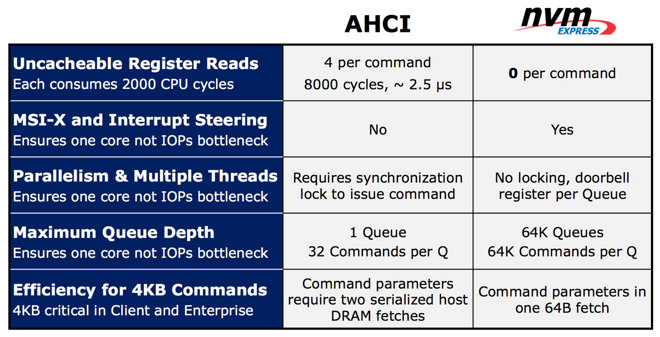Faster SSD performance on new Retina MacBook with latest Mac OS X update
Among some great reasons to get a 12 inches Retina MacBook, faster SSD access has now made the list. The recent update of Mac OS X to version 10.10.3, introduces support for NVM Express. NVM Express is “... an optimized, high performance, scalable host controller interface with a streamlined register interface and command set designed for Enterprise, Datacenter, and Client systems that use Non-Volatile Memory storage...”, as stated on NVM Express website.
In simple terms, NVM Express is an optimized method to handle solid state drives that use the PCIe (PCI Express) interface, commonly found on nearly every newer logic boards and motherboards. PCI Express support was rendered popular by nVidia GPUs, as a dramatically improved data-transfer interface.

The new 12 inch Retina MacBook hardware integrates PCIe-based SSD, but up until now, the interface used was AHCI (Advanced Host Controller Interface), a standard in use since 2004.
The fundamental difference between AHCI and NVMe is that the former was developed for management of traditional rotating hard drives. NVMe is designed to eliminate the limitations of AHCI, by concentrating on handling non-volatile data storage technology.
New Retina MacBook users are now free to experience a significant boost in performance when accessing their data, but they won’t be the only ones to benefit from this technology. iPhone and iPad users will find future versions of their favorite devices, likely upgraded to the new standard, as NVM is specifically designed to handle non-volatile data, like NAND and MRAM.
Apple is in a splendid position to roll out NVMe support, as most Mac products post 2011 already integrate PCI Express SSD. After the 12 inch Retina MacBook upgrade to the new standard, we can expect more models receiving similar updates across all Mac devices that integrate NVMe-compatible hardware interfaces.